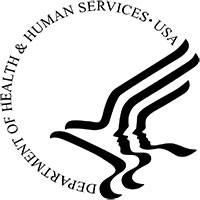HHS’s COVID-19 PHE Extension Brings Continued Relief
The 90-day extension means continued CARES Act relief, relaxed regulations from CMS and state Medicaid programs, as well as from other payers.
- By David Kopf
- Jul 30, 2020
 Last week, HHS extended the COVID-19 Public Health Emergency (PHE) for another 90 days, effective July 25, and the American Association for Homecare outlined the various forms of relief HME providers can expect to continue as a result.
Last week, HHS extended the COVID-19 Public Health Emergency (PHE) for another 90 days, effective July 25, and the American Association for Homecare outlined the various forms of relief HME providers can expect to continue as a result.
The continued relief comes from a variety of sources, such as continued CARES Act relief, relaxed regulations from CMS and state Medicaid programs, as well as other payers, and will last at least until Oct. 22.
“Taken together, these measures will help HME suppliers weather revenue losses and increased costs associated with the pandemic, allowing our industry to continue to provide a high level of care and help alleviate the burdens on hospitals and other parts of our healthcare infrastructure,” a statement from AAHomecare read.
AAHomecare noted some specific forms of relief that should continue:
- Medicare’s 75/25 blended rate for non-rural/non-bid suppliers. The association notes that these areas are receiving rate increases of about 30 percent overall.
- Medicare’s 50/50 blended rate for rural suppliers will remain in effect until the end of 2020 or the end of the PHE, whichever comes late).
- The NCD/LCD relaxations that have allowed expanded use of home-based respiratory products and therapy, as well as infusion and anticoagulation devices.
- The waiving of face-to-face requirements for many products; and the allowance to use telehealth for PMD face-to-face requirement will continue.
- The 6.2 percent increase in Medicaid FMAP matching. This will remain in effect through the end of the quarter in which the PHE expires, which means this relief will continue until at least the end of 2020.
- State Medicaid waivers and flexibilities tied to the PHE.
- TRICARE reimbursement increases tied to the Medicare rate relief.
AAHomecare added that HHS’s PHE extension would likely influence how quickly CMS fully renews audit activities, as well as how other third-party payers determine how long to continue relaxed HME requirements.
The association also reported its Regulatory Council was developing policy recommendations for adopting some of these flexibilities, included expanded telehealth use, on a permanent basis.
About the Author
David Kopf is the Publisher HME Business, DME Pharmacy and Mobility Management magazines. He was Executive Editor of HME Business and DME Pharmacy from 2008 to 2023. Follow him on LinkedIn at linkedin.com/in/dkopf/ and on Twitter at @postacutenews.